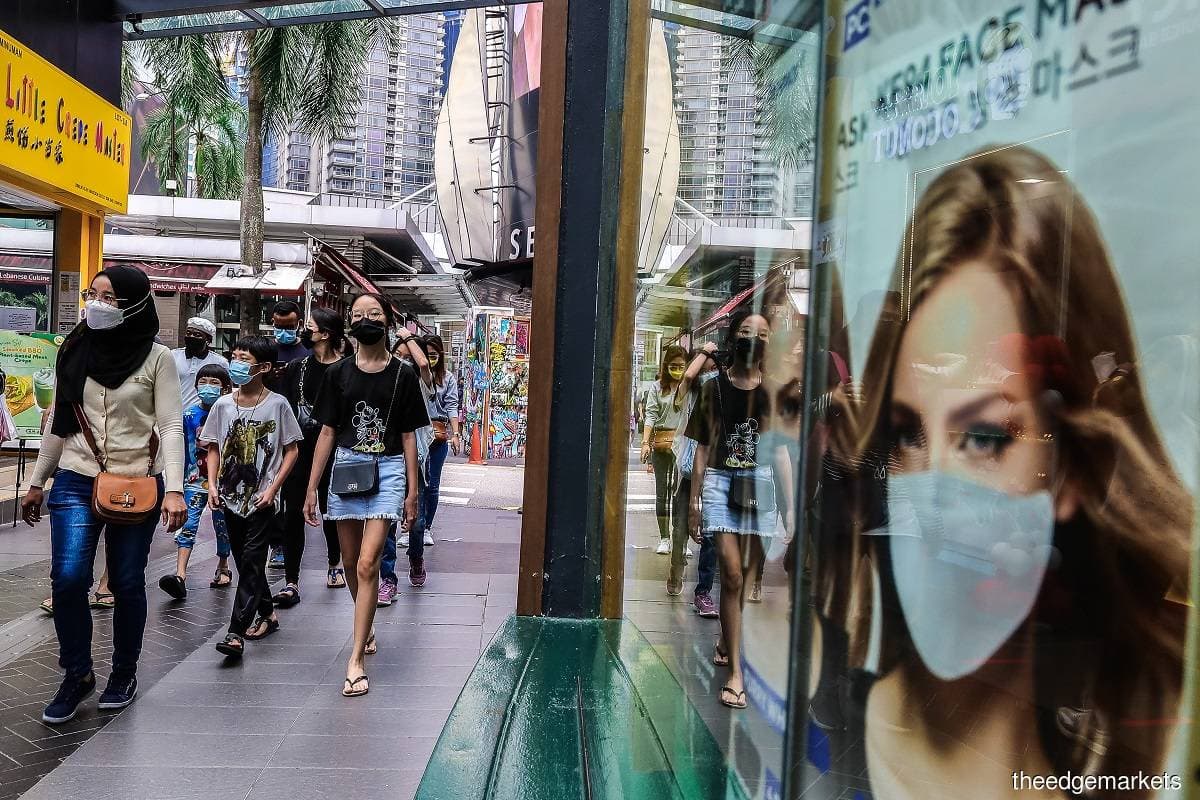
KUALA LUMPUR (Jan 22): The Ministry of Health (MoH) reported 4,116 new Covid-19 cases on Saturday (Jan 22), bringing the country's cumulative infections to 2,829,089.
In a statement, Health director-general Tan Sri Dr Noor Hisham Abdullah said daily recoveries stood at 2,858, bringing the nation's cumulative recoveries to 2,753,119 or 97.3% of all Covid-19 patients.
Of the new infections, 3,618 cases were locally transmitted, while 498 were imported.
Patients in categories one and two comprised 99.1% or 4,077 cases, while 0.9% or 39 infections were in categories three, four and five.
There were 141 patients in intensive care, of which 116 were confirmed to have Covid-19. Meanwhile, 62 patients were on ventilators, with 44 of them confirmed as Covid-19 patients.
Nine new clusters were detected, with the number of active clusters at 225.
The national infectivity rate stood at 1.03, with Kuala Lumpur and Negeri Sembilan reporting the highest R-naught numbers at 1.13, while in Perlis, Sarawak and Labuan, the R-naught numbers stood at zero.
An R-naught number above one indicates that the coronavirus is spreading.
Meanwhile, the MoH discovered 462 new cases of the Delta variant between Jan 19 and 22, bringing total infections concerning variants of concern to 6,874.
Variants of concern include the Delta (6,118 cases), Omicron (439), Beta (233) and Alpha (14) strains of the SARS-CoV-2 virus.
On the other hand, 20 infections of variants of interest have been discovered to date, namely 13 cases of the Theta strain, four cases of the Kappa strain and three cases of the Eta strain.
Serious adverse effects due to vaccine rare, according to SAFECOVAC study
On the other hand, the Institute for Clinical Research under the National Institutes of Health carried out a population study of individuals who received at least one dose of the Covid-19 vaccine between February and December 2021 and were admitted to public and private hospitals for adverse events of special interest (AESI), such as a low blood platelet count (thrombocytopenia), venal blood clots (venous thromboembolism), strokes, heart attacks, myocarditis or pericarditis, heart palpitations, Bell’s palsy and fits.
The study, called the Case-Based Monitoring Of Adverse Events Following COVID-19 Vaccination (SAFECOVAC, NMRR-21-822-59745), included an interim analysis between February and September 2021 involving 433,674 data points.
While it found that the occurrence of AESI differed according to Covid-19 vaccines — namely the Pfizer-BioNTech, AstraZeneca and SinoVac vaccines — as well as between first and second doses, age groups and genders of receipients, such side effects were still rare.
Follow our Covid-19 vaccination tracker to see where we are in the race to herd immunity.
“The SAFECOVAC study concluded that the benefits of Covid-19 vaccines still outweigh the risks and at this time, the SAFECOVAC team is analysing interim data to be published, and the results will be shared soon,” said Noor Hisham.




